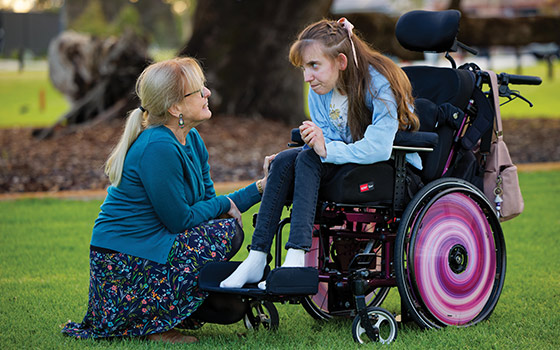Search
Research
Maternal life events during pregnancy and offspring language ability in middle childhoodThere is accumulating evidence for a link between maternal stress during pregnancy and later behavioural and emotional problems in children.
Research
Cell phone use by adolescents with Asperger SyndromeWhile young people have generally been at the forefront of the adoption and use of new communications technologies, little is known of uses by exceptional youth
Research
The broader language phenotype of Autism: A comparison with Specific Language ImpairmentSome individuals with autism spectrum disorders (ASD) experience linguistic difficulties similar to those found in individuals with specific language...

The Quality of Life Inventory - Disability
Research
TALK (Testosterone and Language in Kids) StudyAndrew Chris Gail Susan Peter Videos Whitehouse Watch and listen to Andrew Brennan-Jones Alvares Prescott Jacoby PhD PhD PhD MBBS BMedSci PhD FRACP
Research
The Proactive StudyAndrew Gail Videos Whitehouse Watch and listen to Andrew Alvares PhD PhD Deputy Director (Research); Angela Wright Bennett Professor of Autism
The list of The Siblings Project publications
The studies this project has conducted

Participate in The Sibling Snapshot Project! <!-- [if gte mso 9]> <![endif]--> <!-- [if gte mso 9]> Normal 0 false false false EN-AU X-NONE X-NONE <!
Research
Vitamin D is crucial for maternal care and offspring social behaviour in ratsThese data highlight that early life levels of vitamin D are an important consideration for maternal behavioural adaptations as well as offspring neuropsychiatry
